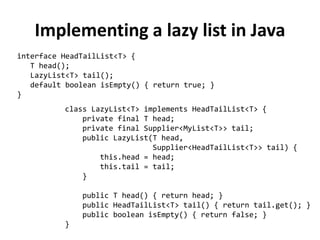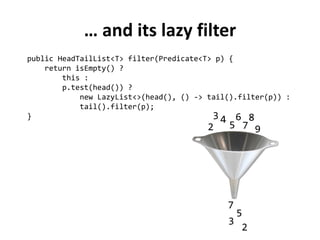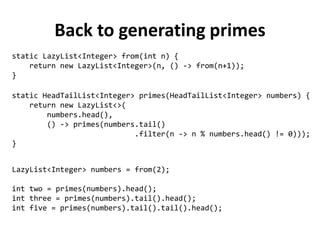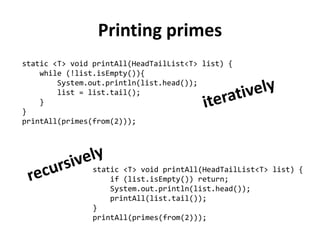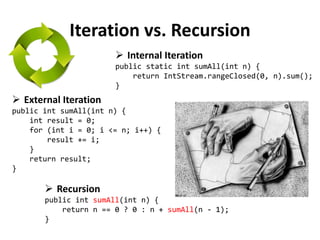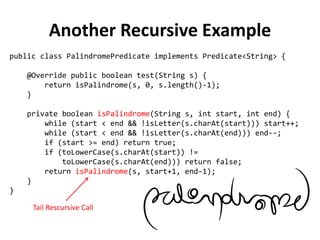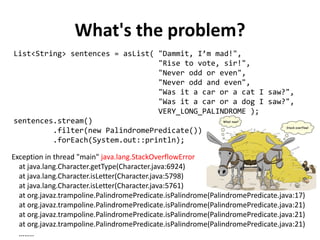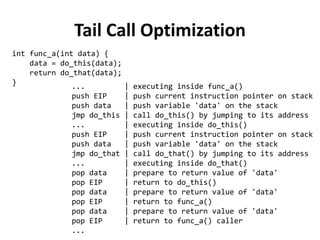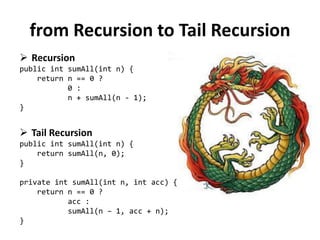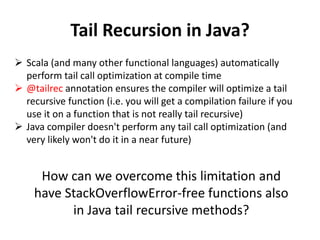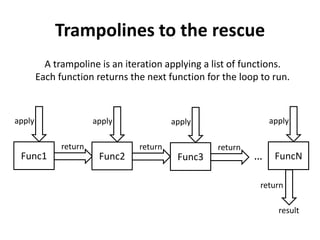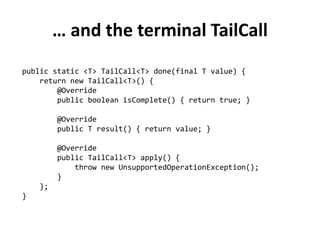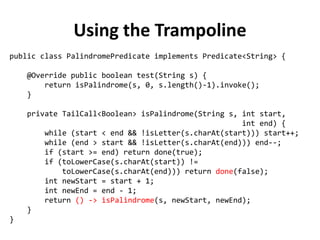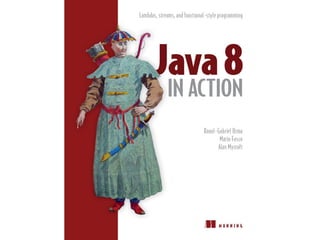The document discusses functional programming concepts like higher-order functions, function composition, currying, and lazy evaluation. It provides examples of implementing strategies like converting between units using functions and creating streams of prime numbers lazily to avoid stack overflows. Tail call optimization is mentioned as a way to avoid stack overflows with recursive functions.
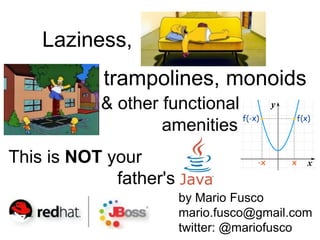
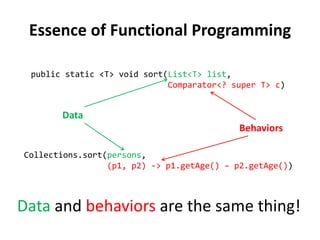
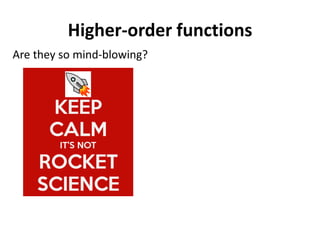
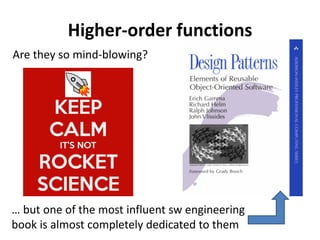
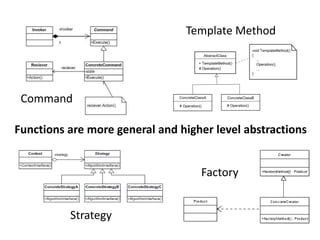
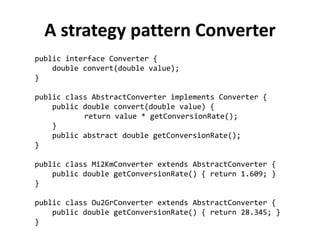
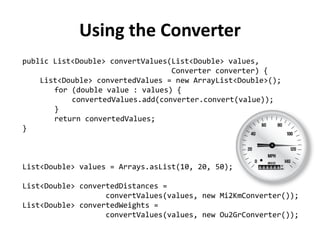
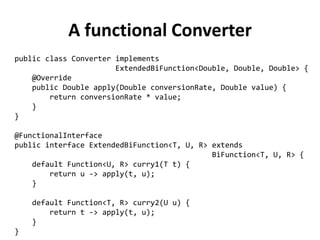
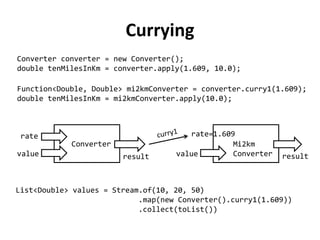
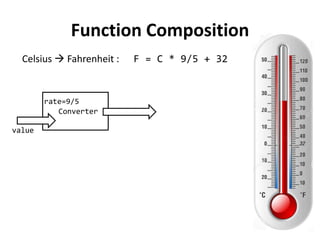
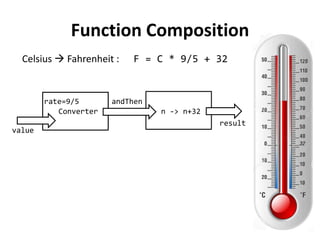
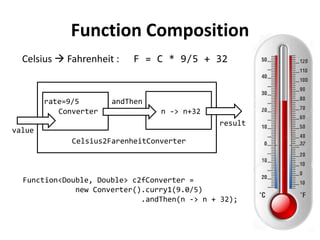
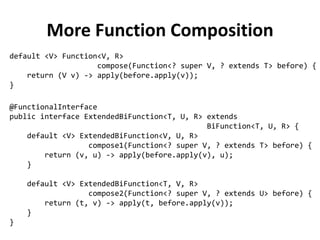
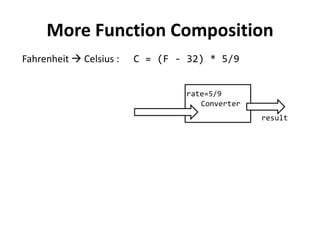
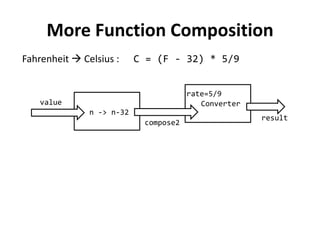
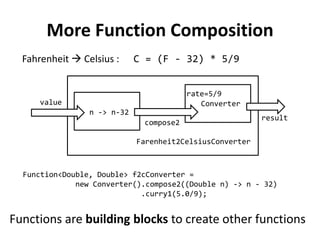
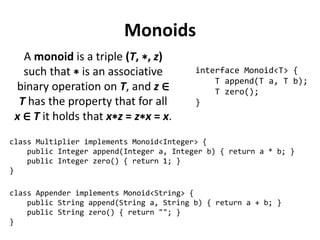
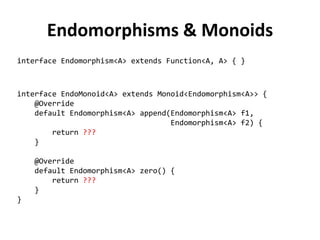
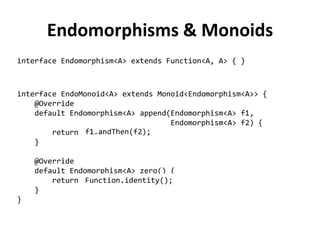
![public class SalaryCalculator {
// B = basic + 20%
public double plusAllowance(double d) { return d * 1.2; }
// C = B + 10%
public double plusBonus(double d) { return d * 1.1; }
// D = C - 30%
public double plusTax(double d) { return d * 0.7; }
// E = D - 10%
public double plusSurcharge(double d) { return d * 0.9; }
public double calculate(double basic, boolean[] flags) {
double salary = basic;
if (flags[0]) salary = plusAllowance(salary);
if (flags[1]) salary = plusBonus(salary);
if (flags[2]) salary = plusTax(salary);
if (flags[3]) salary = plusSurcharge(salary);
return salary;
}
}
SalaryCalculator](https://image.slidesharecdn.com/trampoline-forpdf-140907140136-phpapp02/85/Laziness-trampolines-monoids-and-other-functional-amenities-this-is-not-your-father-s-Java-20-320.jpg)
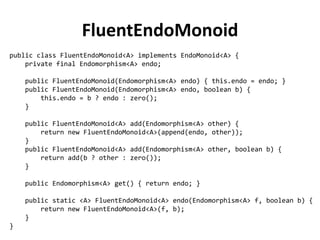
![public class SalaryCalculator {
public double calculate(double basic, boolean [] flags) {
return getCalculator(bs).apply(basic);
}
public Endomorphism<Double> getCalculator(boolean[] flags) {
return endo(this::plusAllowance, flags[0])
.add(this::plusBonus, flags[1])
.add(this::plusTax, flags[2])
.add(this::plusSurcharge, flags[3])
.get();
}
}
Endomorphism<Double> f = salaryCalc.getCalculator(true, false, false, true);
double aliceNet = f.apply(alice.getIncome());
double brianNet = f.apply(brian.getIncome());
Functional SalaryCalculator
You can calculate a single salary …
… but also obtain a calculator for a given combination of flags (Factory)](https://image.slidesharecdn.com/trampoline-forpdf-140907140136-phpapp02/85/Laziness-trampolines-monoids-and-other-functional-amenities-this-is-not-your-father-s-Java-22-320.jpg)
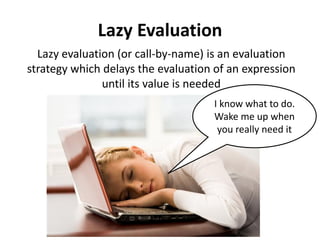
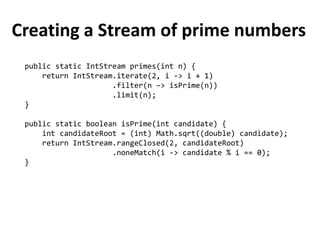
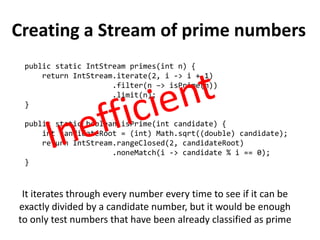

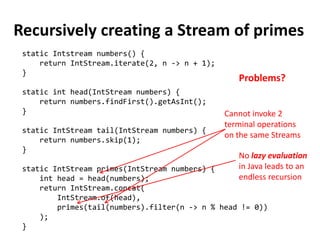
![Lazy evaluation in Scala
def numbers(n: Int): Stream[Int] = n #:: numbers(n+1)
def primes(numbers: Stream[Int]): Stream[Int] =
numbers.head #::
primes(numbers.tail filter (n -> n % numbers.head != 0))
lazy concatenation
In Scala the #:: method (lazy concatenation) returns immediately and the elements are evaluated only when needed](https://image.slidesharecdn.com/trampoline-forpdf-140907140136-phpapp02/85/Laziness-trampolines-monoids-and-other-functional-amenities-this-is-not-your-father-s-Java-28-320.jpg)
